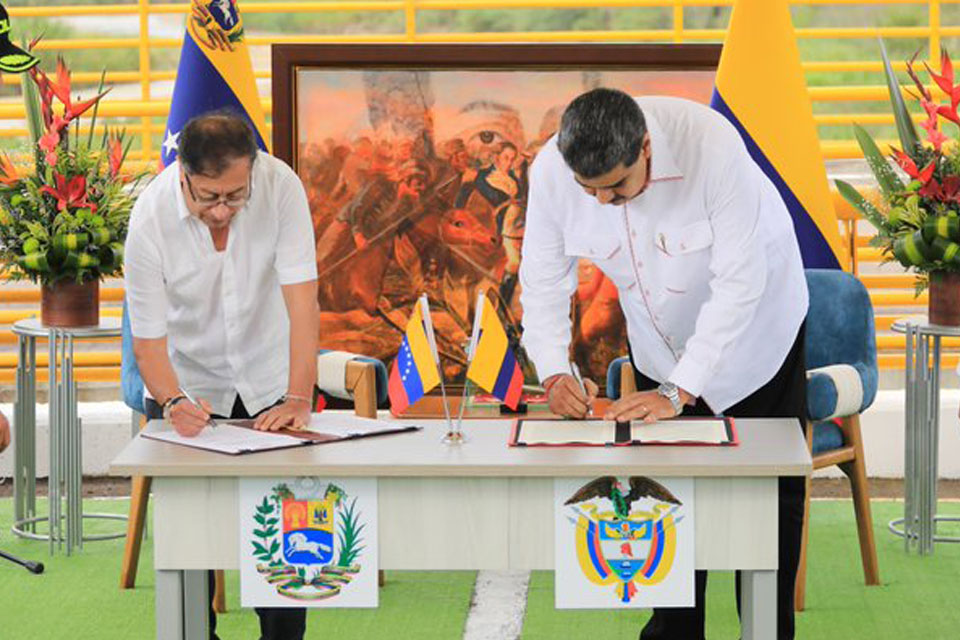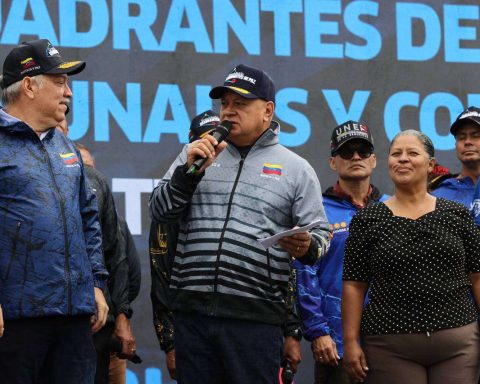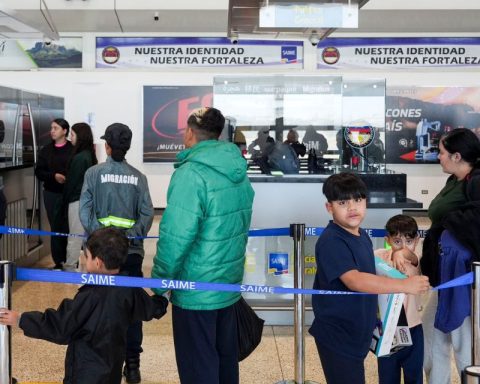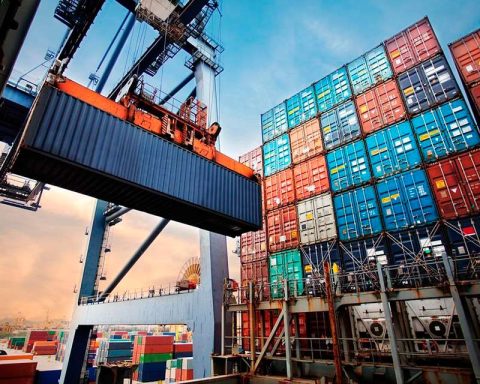Among the benefits of the trade agreement signed between Colombia and Venezuela by the leaders of both countries, the agreement stands out for better tariff conditions for local products than those it had in 2011 when it was adopted.
The partial reform of the Partial Scope Agreement of a Commercial Nature No. 28 signed this Thursday, February 16, between the presidents of Colombia and Venezuela, improves the conditions to increase binational commercial exchange when taking into account both the national production and the Venezuelan exportable supply, according to representatives of local business associations. On the other hand, it was approved that the document be reviewed every six months to adjust the agreed guidelines.
The unions present at the meeting of both leaders that took place on the Tienditas bridge on the border were the Chamber of Colombian-Venezuelan Economic Integration (Cavecol), Conindustria, the Venezuelan Association of Exporters (AVEX) and the Venezuelan Chamber of Industry of Food (Cavidea).
Luigi Pisella, President of co-industry, explained that in 2011 when the Agreement was signed, it was done under conditions very different from the current ones and at a time when Venezuela received significant income, so the tariff benefits were in favor of Colombia. Today, it is expected that local products to be exported can do so under better conditions.
«Of all the observations that were made, a high percentage was taken into account for this Agreement. In other words, we seek together with the State that this agreement is not asymmetric. and we achieved that more than 150 items of the tariff codes were incorporated. From the outset there will be a benefit to Venezuelan exports to Colombia,” he said.
On the other hand, “it was taken into consideration and it is the basis of the Agreement”, to determine which products are sensitive and do not need to have a tariff benefit since they are already produced in the country.
“In principle, it seeks to balance the Agreement so that it is a win-win, that is, that the Colombian industrialist is identified as the Venezuelan and, from there, explore which products can jointly be exportable to other countries. taking advantage of Colombia’s free trade agreements,” said Pisella.
Likewise, the Agreement contributes to carrying out complementary agreements between both nations and especially in important areas that require large investments.
The president of Conindustria states that this signing of the agreement is a great advance, but there are still other measures to be executed, such as the approval of some new regulations or their reformulation that must be analyzed and authorized by the National Assembly, for which reason it is not expected a significant increase in binational trade, “There will be a gradualness in it.”
In the joint declaration of the binational meeting on the Atanasio Girardot bridge, known as Tienditas, the goal of 1.8 billion dollars in commercial operations is foreseen by the end of 2023, a significant increase compared to previous years.
The Agreement signed this Thursday also maintains the guidelines for the protection and promotion of investments in both countries.
Representatives of the Venezuelan business associations during the form of the trade agreement at the border.
These are some of the articles of the Agreement between Colombia and Venezuela:
Article 1: The purpose of this Agreement is to establish, maintain and consolidate a legal framework that facilitates and promotes direct cross-border investments made by investors of one Party, in the territory of the other Party, in order to promote the harmonious, productive and sustainable development of both peoples, with respect to the sovereignty and self-determination of each of the parties, their national legal system and international law.
Article 4: Subject to its national legal system, each Party will encourage and create favorable conditions for investors of the other Party to make direct cross-border investments in its territory. The extension, alteration or transformation of an Investment must be made in accordance with the national legal system of the Receiving Party in whose territory the Investment is made. In order to increase direct cross-border investment flows, each Party will endeavor, at the request of the other Party, to inform the latter of investment opportunities in its territory.
Article 6: For greater certainty, this Agreement will not give rise to unjustified more favorable treatment towards foreign investors with respect to domestic investors. The Parties, in accordance with their national legal system, will give favorable consideration to the requests for entry and stay of the nationals of any of the Parties who wish to enter the territory of the other Party in relation to the realization of an Investment.
Article 15: The Parties hereby establish a Joint Committee, composed of the representatives of Colombia and Venezuela. The first meeting of the Joint Committee will take place during the year following the entry into force of this Agreement. Subsequently, the Joint Committee will meet every two (2) years in Caracas and Bogotá, alternately, unless the Parties agree otherwise. The Joint Committee will be co-chaired by the Minister of People’s Power with competence in Foreign Trade of Venezuela and the Minister of Commerce, Industry and Tourism of Colombia, or whomever they designate respectively.
Article 16: The Parties may agree, at any time, at the request of any of them, to consult on the interpretation or application of this Agreement. At the request of either Party, information on measures of the other Party that may have an impact on new investments, investments or profits covered by this Agreement will be exchanged.
Article 17: This Agreement shall enter into force sixty (60) days after the date of receipt of the last notification made by the Parties, in writing and through diplomatic channels, of the completion of the respective internal legal procedures necessary for this purpose.
*Also read: After signing a trade agreement with Maduro, Petro insists on war against border mafias
Post Views: 517

















